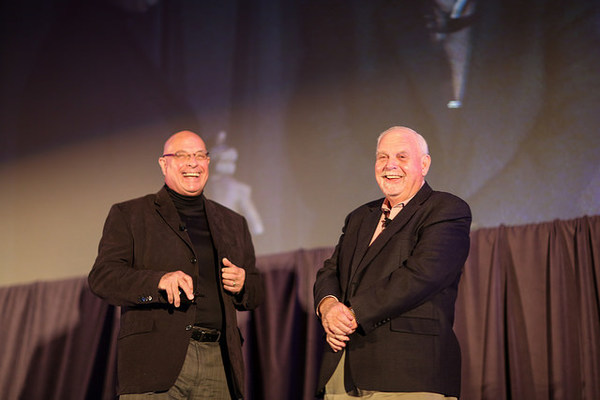
Dr. Ron Bonnstetter Shares Insight from Q&A with Ph.D. Student
As an organization rooted heavily in research, TTI Success Insights regularly hears from individuals in academic settings inquiring about our science and tools.
Most recently, Dr. Ron Bonnstetter, senior vice president of research and development, received the following questions from a doctoral student.
Although his answers were shared with the Ph.D. student’s research project in mind, the details on Dr. Bonnstetter’s responses are valuable for anyone selling DISC (Dominance, Influence, Steadiness, Compliance), especially a high C client who is requesting support material.
Here is an excerpt from their exchange that will help you understand DISC measurement and literature surrounding DISC a bit better:
Student: In your expertise/opinion, is it appropriate for me to think of DISC as a measurement of organizational excellence?
Dr. Bonnstetter: First of all, every field of study has its own vocabulary and key concepts that are unique to that field. In other words, the first step is to define what is meant by “organizational excellence.” This is absolutely essential because the definition will drive how you measure success.
For example, if the definition is based on profitability or return on investment, then financial measures are required. If a group of environmentalists are defining success or excellence, it will be based on the company’s environmental impact.
Answer this question so you can both define the goals and then justify your selection of measures.
Next, you are ready to identify the measures you need. DISC helps by identifying qualities of interpersonal interactions, organization abilities and collaboration as a behavior, etc. But, DISC alone is not enough to answer even this short list of qualities.
For example, a love of learning is a motivator and needs a different assessment to determine, and leaders with a vision require assessing soft skills.
So, always think about gathering more than just behaviors to help you identify an excellent organization.
Student: Is there any literature on DISC as a measurement of organizational excellence?
Dr. Bonnstetter: Behavioral assessments are used daily for exactly the purpose you request — evidence of performance and/or organizational success. The following literature pieces are examples of research supporting DISC:
- Dr. Lisa Aldisert’s Dissertation. Lisa M. Aldisert, Ed.D., wrote her Columbia University dissertation using our assessment. She addresses DISC in several sections, and again in her findings and in her analysis. While you will see the typical redundancy of a dissertation, I think you will be able to pull some evidence and reference to this study.
- Predicting Academic Performance in Surgical Training. This study provides an analysis of behaviors, as well as examines other assessments. The discussion starting on page 496 offers an explanation for why they used this assessment, (TriMetrix® HD). What you gain from this paper, along with Dr. Aldisert’s dissertation, is the need for more than one assessment.
- “DISC: The Universal Language.” This is a hardcover text on TTI’s DISC, including 371 pages of information, statistics, visuals and application. TTI Success Insights is the only company with a book on the DISC product.
- Creating, Educating and Assessing a New Class of Entrepreneurial Minded Engineers. This is another study that uses multiple sciences, with behaviors, motivators and DNA (or 23 soft skills) to identify the most entrepreneurial of a group of engineers.
- "Lowering the Walls and Crossing Boundaries: Applications of Experiential Learning to Teaching Collaboration.” This resource has several useful data wheels that shows you how DISC can be used to help a team see how they all fit together.
Have a research question for Dr. Ron Bonnstetter? Email him at ron.bonnstetter@ttiltd.com.



